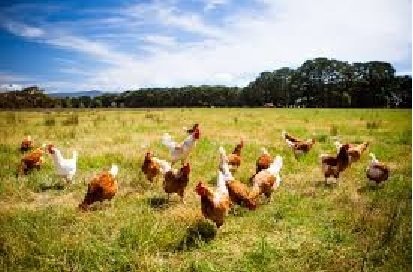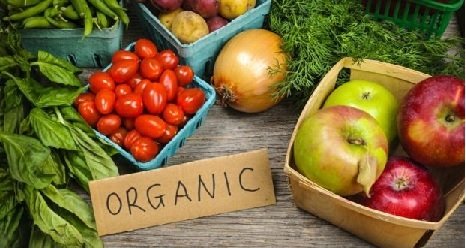The general perception that organically produced foods provide a more nutritious, safer and healthier option is not necessarily the case. Scientific studies have not produced straightforward, significant evidence in its favour.
To achieve organic certification production criteria apply; e.g. the land utilised should be free of chemical inputs, synthetic chemicals, genetically modified seeds are not used, and specific rules regarding animal husbandry are applicable. However, regulations vary between different countries and may be very general or imprecise (US regulations are well defined and EU & UK regulations are in process). Imported organic produce from countries with less stringent or no regulations (e.g. Turkey, Romania or Bulgaria), have to be tested to ensure compliance with EU/UK standards.

Studies are inconclusive and contradictory regarding the nutritional values of organic food versus conventionally produced food. The conclusion of some studies is that there is insufficient evidence and another study performed at Stanford university concluded there no difference in nutritional value. On the other hand a meta analysis of 343 peer reviewed studies concluded that antioxidant levels in organic fruit and vegetables were up to 40% higher than the conventionally produced equivalent (antioxidants are associated with many health benefits) and that there are significant differences in some vitamin and mineral content.
Safety issues of organic versus inorganic foods; Synthetic pesticides are used by conventional producers to control disease, insects and moulds. These chemicals may be residual in the food products. One study shows that the risk of residual pesticides to be 30% less in organic produce, but that the difference in the risk of a pesticide residue exceeding the maximum allowed limit to be minimal. Another study indicated that pesticide residues were 4 times higher in conventional crops and they also contained higher levels of the toxic metal cadmium (this being attributed to non- use of mineral nitrogen and phosphorous fertilizers by organic producers). An EU study on pesticide residues (testing was performed for 685 different pesticides) in over 80,000 samples resulted in 97.4% of the samples being within legal limits and that 54.6 of the samples did not contain any quantifiable residue, hence the risk of any adverse health impact is extremely low.
Bacterial contamination; a study showed no difference in the risk of E Coli contamination, but the chances of find antibiotic resistant bacteria (resistant to at least 3 antibiotics) was greater (33%) in conventionally produced chicken and pork.

The use of food additives and processing aids (substances used during processing but not added directly to the food) is banned or severely restricted in organic food production. Similarly is the use of artificial sweeteners, preservatives, colourings and flavourings (e.g. mono sodium glutamate) which are commonly used in nonorganic food production. There are exceptions though, the US has a defined list of additives, which contains some non-organic additives and the EU regulation is very generic, permitting use “if only in case of essential technological need or for particular nutritional purposes” Article 6 (EC) No 834/2007. An Evaluation of “essential” is required.
Although the perceived enhanced nutritional and safety properties of organic food have not been proven, organic production has positive environmental implications. Organic farming practices reduce pollution, and conserve water and soil quality. Animal welfare, natural feedstock and pastures and minimal use of veterinary products result in a more natural method of food production and consumption. This alone may justify the choice of organic produce.

Loved your pic of sunflowers field
Downvoting a post can decrease pending rewards and make it less visible. Common reasons:
Submit
Congratulations. This post is featured in the week's nunesso's Curation post for the Nutrition and Natural Products industry. You have received a 100% upvote from us.
https://steemit.com/natural-products/@nunesso/weekly-nunesso-natural-products-curation-12
Downvoting a post can decrease pending rewards and make it less visible. Common reasons:
Submit